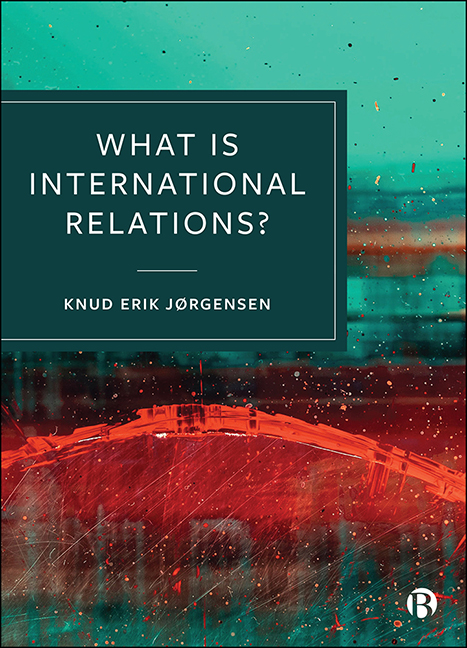Book contents
- Frontmatter
- Contents
- List of Figures, Tables and Box
- List of Abbreviations
- Preface
- Introduction
- 1 What is the Subject Matter?
- 2 What are the Human Sciences?
- 3 What is a Discipline?
- 4 What is Theory?
- 5 What is Disciplinary Diversity?
- 6 What is Community?
- 7 Globalizing International Relations?
- Conclusion
- Notes
- References
- Index
4 - What is Theory?
Published online by Cambridge University Press: 13 May 2022
- Frontmatter
- Contents
- List of Figures, Tables and Box
- List of Abbreviations
- Preface
- Introduction
- 1 What is the Subject Matter?
- 2 What are the Human Sciences?
- 3 What is a Discipline?
- 4 What is Theory?
- 5 What is Disciplinary Diversity?
- 6 What is Community?
- 7 Globalizing International Relations?
- Conclusion
- Notes
- References
- Index
Summary
Introduction
This chapter traces the nature of theory, including changing conceptions of it. Given that the book is about a discipline that is defined to some degree by its theories, such a chapter seems almost obligatory. That scholars often define the discipline by its theories indicates that the significance of theory for the discipline is considerable and, moreover, that exploring the functions of theory for and in the discipline is worthwhile. This chapter is therefore not yet another chapter about the body of IR theories. Nor is it only about theory but also about theorizing, not least because, as Rosemary Shinko (2006) highlights, ‘theorizing is fun’ (p. 45) and should be taught. The chapter examines meta-theoretical issues, albeit with a view towards practical rather than hair-splitting problematiques.
In the next section I characterize the act of theorizing and outline the functions of theory in a disciplinary context, to avoid some of the potential misunderstandings that might follow from limited specification. The point of departure is to perceive IR as not a static but a dynamic discipline. From such a perspective, it follows that the functions of theory in the discipline change over time, a fact that has not received the attention it deserves. In this context, it is crucial to understand that conceptions of theory also change over time; what counted as theory in the 1930s no longer counts that much in the 1960s or the 2010s. Within IR, the first reference to theory seems to have been made in the 1930s. Subsequently, theory, or rather the meaning of theory for the discipline, has experienced some profound swings and turns, a process that has been strongly marked by geographical variation. For instance, the search for the Holy Grail, in this case a general theory of international politics (TIP), came to an abrupt end around 1970 in some parts of the world (Holsti, 1971) but there was no such search in other parts.
Subsequently, in the third section, I shall demonstrate how the changing conceptions of theory have consequences for the trajectory of the discipline. As we shall see, one function of theory is to provide propositions that can in turn generate questions for empirical research. This connects well with the idea that the discipline should be defined not by its subject matter but by its guiding research questions (see Chapter 1).
- Type
- Chapter
- Information
- What Is International Relations? , pp. 69 - 89Publisher: Bristol University PressPrint publication year: 2021



